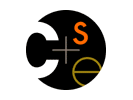
|

CSE 473: Artificial Intelligence I |
|
 CSE Home CSE Home |
 About Us About Us |
 Search Search |
 Contact Info Contact Info |
|
Welcome to CSE 473 for Spring 2004!Time Schedule:MWF 1:30-2:20 MOR 234Teaching Assistant:Brian Ferrisbdferris@cs.washington.edu Allen Center 394 Office Hours: 3:30-5 on Wed in CSE220 and 10:30-12 on Thurs in CSE 218 Syllabus:As PDF or Post Script. I will also attempt to keep up an RSS feed with all lectures and assignments: Schedule Mailing List:Please visit http://mailman.cs.washington.edu/mailman/listinfo/cse473 to subscribe to the class mailing list. Lectures:
Assignments:Problem sets will be handed out on Fridays and are due at the beginning of class one week later. The TA will hand problem sets back one week after they turned in.
Important DetailsGrading and Late WorkAs stated in the syllabus, late problem sets will receive zero credit. Your grade in the course will be determined as follows:
You can drop your lowest problem set score. Cheating Vs. Collaborating GuidelinesAs referenced from Dan Weld's guidelines. Collaboration is a very good thing. On the other hand, cheating is considered a very serious offense. Please don't do it! Concern about cheating creates an unpleasant environment for everyone. If you cheat, you risk losing your position as a student in the department and the college. The department's policy on cheating is to report any cases to the college cheating committee. What follows afterwards is not fun. So how do you draw the line between collaboration and cheating? Here's a reasonable set of ground rules. Failure to understand and follow these rules will constitute cheating, and will be dealt with as per University guidelines.
|
|||||||||||
|
Computer Science & Engineering University of Washington Box 352350 Seattle, WA 98195-2350 (206) 543-1695 voice, (206) 543-2969 FAX [comments to bdferris] | |